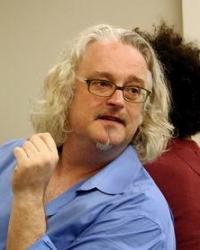Phillip Thurtle
Job Title
Professor and Director, Comparative History of Ideas; Humanities 102 and 103 Instructor, Winter and Spring 2022
Profile Photo
Image

Preferred Pronouns
he/him/his
Phillip Thurtle is professor in CHID and History. He received his PhD in history and the philosophy of science from Stanford University. He is the author of Biology in the Grid: Graphic Design and the Envisioning of Life (University of Minnesota Press, 2018), The Emergence of Genetic Rationality: Space, Time, and Information in American Biology 1870-1920 (University of Washington Press, 2008), the co-author with Robert Mitchell (English, Duke University) and Helen Burgess (English, University of Maryland) of the interactive DVD-ROM BioFutures: Owning Information an Body Parts (University of Pennsylvania Press, 2008), and the co-editor with Robert Mitchell of the volumes Data Made Flesh: Embodying Information (Routledge, 2003) and Semiotic Flesh: Information and the Human Body (University of Washington Press, 2002). His research focuses on the material culture of information processing, the affective-phenomenological domains of media, the role of information processing technologies in biomedical research, and theories of novelty in the life sciences. His most recent work is on the cellular spaces of transformation in evolutionary and developmental biology research and the cultural spaces of transformation in popular culture.